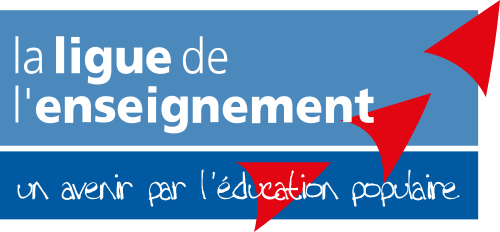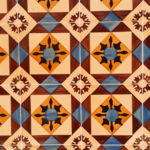Founded in 1866, la Ligue de l’enseignement is one of France’s largest organisations in non-formal education.
1866 : Jean Macé, a journalist, creates la Ligue française de l’enseignement
1872 : 1,300,000 signatures for a free, compulsory, secularist and public school
1881-1882 : Jules Ferry, French secretary of education, makes school free, compulsory and secularist
1905 : law on the separation of church and state
1925 : the “constituent assembly for a restored Ligue” decentralises the organisation
1930 : La Ligue is recognized as a public interest organisation
1942 : La Ligue is dissolved during the Second World War and refounded in 1945
1987 : Creation of Condorcet circles to promote critical thinking and fight against disinformation
1999 : First education Fair: it takes place each year in november
It gathers 25,000 associations in 102 local and 22 regional federations with the common aims of training responsible citizens, fighting against all inequalities and building a fairer and more independent society. It aims to guarantee access to education for everyone and further promotes a secular society, solidarity among citizens and active citizenship.
Over 1.6 million members
Present in 23,840 towns
500,000 volunteers
educAtion/ LifelOng LeArning
As a complementary actor to school, la Ligue works in favour of reducing inequalities and school competition by enabling access to non-formal and informal education for everyone. La Ligue cooperates with local authorities to assess and redirect public policies and projects in the field of education. Examples of activities carried out are support actions for school dropouts, adult education centres, 2nd chance schools, recreational centres…
Youth
La Ligue de l’enseignement accompanies youngsters from childhood to young adulthood. Since 2007, la Ligue is a host organisation for the French civic service. La Ligue also supports youth initiatives through trainings for youth facilitators and youngsters, in order to promote their active citizenship. Youth commitment is notably done through the programme “Juniors Associations”, which helps underage teenagers create their own association.
2,000 volunteers hosted in 95 federations in 2014
10,000 empowered youth in 1,000 “Juniors associations” in 2014
Over 4,000 “Juniors Associations” founded since 1998
HolidaYs and educatiOnal leisure activitiEs
“Vacances pour tous” has been a dynamic actor of social, educational and associative tourism in France for 50 years. La Ligue de l’enseignement promotes the principle of equal opportunities through financial support by local authorities. La Ligue offers certifying courses for youth leaders and workers.
It offers school trips, summer camps, family trips and language course holidays.
Over 500,000 children and teenagers are able to take part
in holiday or language course programmes each year
160 holidays centres managed by la Ligue all over France
FreedOm of consciEnce (Laïcité)
La Ligue works on connexions between “laïcité” (humanism) and diversity and has built a theoretical overview in one of its founding texts “Humanism, a key to the management of diversity” by Pierre Tournemire, one of its vice-presidents. La Ligue’s position defends a republican idea, based on equality of rights, facing transformation of French society into a multicultural society. The notion of “laïcité” is specific to France and is not an easy one to translate or to explain.
Humanism or secularism are the closest translations. It represents the separation between church and state, freedom of thought, freedom to believe or not to believe.
SpOrt
La Ligue promotes school sport and sport for all, through its sports federations Ufolep and Usep. Their objective is to give everybody the possibility to practice physical activities, as part of culture and a means of education, involving all people and especially children, in the perspective of favouring an inclusive society.
2,000,000 pupils and their relatives involved in Usep
400,000 members of Ufolep
CultUre/informAtion sOciety
La Ligue believes culture is not only limited to arts and heritage but enables us to understand the world. Cultural education and youth policies should be consistent and each of them should be led democratically, by involving citizens. Four priorities lead its work: reinforcing artistic education, diversity, participation and lifelong learning.
400,000 spectators of 2,500 performances and 77 festivals
250,000 children reached by writing and reading activities
1,800,000 cinema tickets each year
EnvironmEnt and sustAinable develOpment
For 20 years, la Ligue de l’enseignement has been committed to implement civic activities about environment and sustainable development. It favours community education to involve citizens. The Environment and Sustainable Development Department has two main goals: the development of a Citizenship-Environment-Sustainable development (CED) label and the implementation of Agenda 21.
40 accommodation and recreational centres with CED label
20 federations acting for associative Agenda 21
eurOpe/internAtional solidaritY
The Department of International and European affairs is a resource centre for the federations. The head office of la Ligue de l’enseignement is involved in many European projects. The International Department works also in close cooperation with the French-German Youth Office (OFAJ). The International Department represents la Ligue de l’enseignement in European networks representing civil society and promoting shared values of solidarity, social justice, such as Solidar, EUCIS-LLL and the European Civic Forum.
SociAl wElfare
Social welfare aims at enabling vulnerable, excluded people or those facing integration challenges to be part of society. La Ligue manages social rehabilitation and medico-social institutions dedicated to welcome them outside public institutions.
It acts daily to develop innovating and singular practices, promoting social cohesion, active citizenship for all and preventing exclusion.
1,800 employees taking care of over 15,000 people






Comments by jlcazaillon